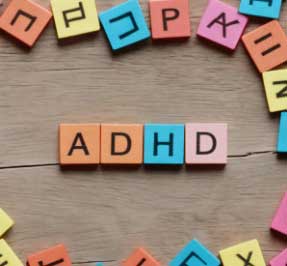 In the short span of one generation, childhood obesity in the U.S. has tripled. Experts warn that with obesity rates for children and adolescents hovering between 17-18%, today’s youth are at great risk than ever before for developing long-term health problems.
In the short span of one generation, childhood obesity in the U.S. has tripled. Experts warn that with obesity rates for children and adolescents hovering between 17-18%, today’s youth are at great risk than ever before for developing long-term health problems.
It is becoming increasingly important for parents, teachers, medical providers, and anyone else who deals regularly with children and teenagers to be aware of the physical and psychological impacts of childhood obesity and to address it with both knowledge and compassion.
What are the Main Causes of Childhood Obesity?
- Families today are busier than ever. Unfortunately, this often means family meals consist of fast food eaten on the go. Meals consumed at home may be heavily processed, high-fat convenience foods.
- Overeating is often habitual within families. If children regularly see their parents eating more than they need in order to sustain a healthy body or eating as a means to cope with emotions, they mimic these patterns.
- Most children spend far more time sitting still in classrooms or engaging in sedentary activities like TV watching and playing video games than they do engaging in physical activity.
- Genetics can pre-dispose children to becoming obese. Not everyone has the same metabolic rate, and both intake and expenditure of calories need to be adjusted for each individual in order to maintain a healthy weight.
- Environmental factors, such as exposure to phthalates, a plastic softener often used in the packaging of processed foods, and BPA, used as a liner in canned foods, may increase the risk of obesity. Recent studies measuring these chemical levels in the urine and blood of children and teens show a slight increase in obesity in children with higher levels. Studies are inconclusive at this point, as it may be the chemicals themselves, or it could be that children with higher levels are eating more processed, fattening foods.
- Socioeconomic factors cause impoverished children to have a higher rate of obesity. If a family has to take a bus (at a cost) to a grocery store, but can walk to fast food or a convenience store, they oftentimes have little choice in the matter. Another factor is the cost of fresh food versus fast food. Sadly, fresh produce is more expensive than carb loaded, fatty foods routinely found on dollar menus.
What are the immediate risks?
- High blood pressure, a risk factor in developing cardiovascular disease
- High cholesterol, a risk factor in developing cardiovascular disease
- High blood sugar levels that are a precursor to diabetes
- Joint and bone problems
- Sleep apnea
- Low self-esteem
- Increased risk of being bullied or socially ostracized
What are the Long-Term Risks?
- Significantly more likely to become obese adults
- Heart disease
- Type 2 diabetes
- Stroke
- Osteoarthritis
- Cancer
Addressing Childhood Obesity
While most people tend to hyper-focus on parental education, and it is an incredibly important factor, one shouldn’t assume that ignorance is always the cause. For low-income families, a single mom or dad working twelve hours days just to survive, may not have the means to act on the knowledge they possess. Social programs to increase access to fresh foods and structured physical activity in poor neighborhoods could play a huge role in decreasing obesity.
When lack of education is a component, compassion, cultural awareness, and sensitivity are of the utmost importance. In addition to educating parents, children need to be educated about healthy lifestyles. Kids who have a strong understanding of which foods help their bodies and which ones cause harm will oftentimes try to make dietary improvements on their own.
It is important to avoid shaming or blame when addressing weight. Children who are emotional eaters will only suffer further, and will probably be driven to eating in secrecy. Actions speak louder than words; so talk less and do more of the things that will help. Find ways to incorporate healthier foods into your family’s meal plan. Let your children choose recipes and help you prepare them. Replace sedentary family time with fun physical activities. Instead of plopping down in front of the TV, take a bike ride together.
Devon is a certified personal trainer, licensed mental health/substance abuse counselor and a nationally certified teacher. She is committed to helping young people be their highest selves in all areas: body, mind, and spirit. For training, coaching, or counseling sessions, please contact her at 505.469.0779 or he***************@***il.com.



